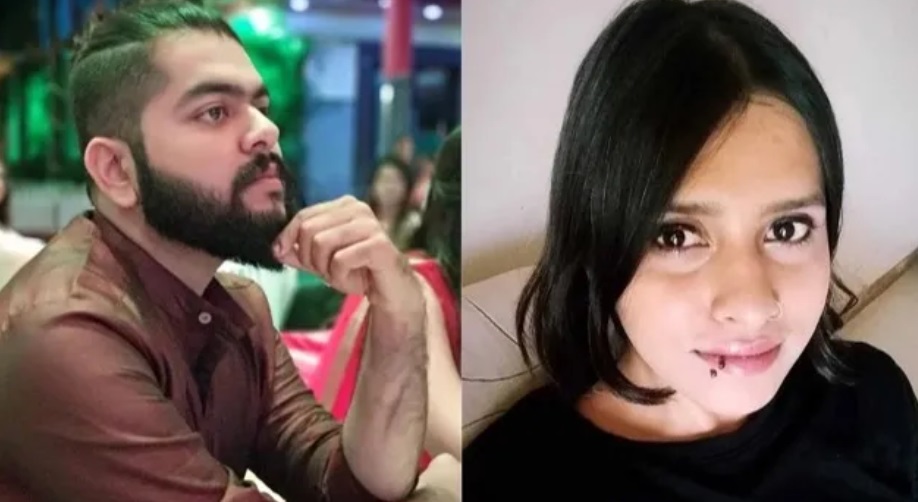
The story of Shraddha & Aftab, with a crime drama countenance, has passion defying family and all religious, societal norms for love
The harrowing love story of Shraddha and Aftab, has all the makings of a crime drama. It has passion that defies family along with all religious and societal norms for love.
However, the saga eventually turned gory as the alleged lack of commitment on the part of the boy, leads to deception and finally a murder that has shocked the entire nation. The National Capital is no stranger to crime but you don’t often hear a boy in the city chopping his girlfriend’s dead body to 35 pieces, keeping them in a refrigerator to dispose them off one by one. The emerging details of this crime has indeed sent shivers down the spine of every Indian parent who is raising a daughter.
The story is no longer just about teenage romance turning into a sour live-in relationship. Probably, every Indian household will draw lessons from Shraddha’s fate. You may find fathers drawing more rigid religious boundaries for any romantic relationship that their daughter might be interested in. The fear is this episode may become yet another reason for more family and social restrictions over girls, manifestation of which could be no less ugly.
It is noteworthy that this is not the sole crime of its kind. We have seen several stories recently of love turning into hate and then gruesome murders in recent past. Just sample a few-
*A girl in Meerut’s Pallavpuram has recently lodged a police complaint alleging her lover named Muzammil, was threatening her with the same fate as Shraddha. The boy falsely claimed to be a Hindu to enter a romantic relationship and the girl has already had three abortions, if the complaint is to be believed.
* In 2010, a man named Rajesh Gulati was accused of killing his wife Anupama at his residence in a posh colony of Dehradun. The incident was uncannily similar to what Aftab is alleged to have done. Rajesh also cut Anupama’s body to 72 pieces and reportedly bought a deep freezer to hide them. He had already disposed off half of these pieces by the time the law got the better of him. His children living in the house had no inkling of their father’s deeds.
• Mumbai-based TV producer Neeraj Grover was brutally killed by his girlfriend Maria Susairaj in 2008 in collusion with her fiancée Mathew. Media reports suggested the duo even copulated with Grover lying dead in the same room. They then cut Grover’s body to 300 pieces and burnt them in a jungle.
• UP Police recently arrested a man named Sufian after an encounter in Lucknow. He had a prize of Rs 25,000 on his head. Sufian is alleged to have lured his neighbour Nidhi Gupta to religious conversion and then killed her by throwing her from a rooftop.
• The police have found a dead body stuffed inside a suitcase thrown near an underpass along Yamuna Expressway near Mathura. According to media reports, preliminary investigation suggests a kalava was found on one of the hands of the deceased person indicating she might have been a Hindu.
• A similar incident has also been reported from Bangladesh. One Abu Bakar murdered a Hindu girl after marrying her and then repeated the same crime with another Hindu woman. The modus operandi of the crime, is said to be strikingly similar to the Shraddha -Aftab case.
Such heinous crimes cannot be seen from the prism of religion, region or caste alone. However, there are chances that some of the incidents mentioned above, might be the cases of love jihad. Regardless, the question that begs answer is this: Why only women are the victims of such brutality?
They are the ones living afar from their families in such situations. Most relatives are usually disapproving of their relationship, especially if it breaches caste or religious boundaries. Their love is often the only support they have in such circumstances. In such a situation where this love turns out to be a deception, or worse still into violence, most of these girls find themselves bereft of any support. This loneliness can break their spirit to fight for their lives.
On the other hand, the perpetrators are only emboldened by the lack of any support for the girl. It encourages their male chauvinism within as soon as the girl starts demanding her due from the relationship. Such a scenario could be a perfect recipe for the man involved turning into a criminal, more so, if he lacks any moral compass. The transformation is often aided by the influence of the popular media, as we have seen in Aftab’s case. But social insecurity is the biggest culprit in turning normal men to such merciless beasts.
Shraddha ’s story is no different. She had the courage to go against her family’s wishes and enter into a relationship with a boy from a different religion. She left her home, put her family’s honour on the line but couldn’t muster the same courage to go back to the parents when Aftab’s reality dawned upon her.
Shraddha’s parents must also answer if they were justified in severing all ties with her? Could she not have found easier to leave the toxic relationship with Aftab if her family stood beside her? Or at least stayed in touch?
Passion crimes such as these as mentioned above, grab headlines for their gut-wrenching brutality. However, every crime against women, be it for dowry or for any other reason, is no less reprehensible. Sometimes a woman’s entire in-laws’ family is involved in targeting her. Women are burnt alive after a gridding cycle of daily torture, verbal as well as physical. Even dowry-related crimes occur with such alacrity because women’s own parents wash their hands of the girl’s responsibility after marriage.
Shraddha was murdered in May in the present case. And yet, it took six months for the truth to come out. This shows how lonely and helpless Shraddha would have found herself against Aftab’s purported cruelty. Law will decide if Aftab is guilty or not, but can Shraddha ’s own relatives escape the blame?
Union Minister Kaushal Kishore has held girls opting for live-in relationships as responsible for such murders. Even if we accept the argument that live-in relationships are the real cause of the problem, how justified is it to put the entire onus on women alone? Are we not condoning the criminal mentality of men like Aftab by doing so?
Such a sweeping statement from a Union Minister, is even more unfortunate and puts a question mark over the role of the system in such incidents.
Women like Shraddha or Anupama did not fall prey to hardened criminals. Suave and literate men killed them. This raises another question as to how many Aftabs and Rajesh Gulatis must be living around us? The fact that they are as ordinary as most of us, makes them even more dangerous. What goes inside the minds of such potential criminals, has a psychological aspect. This is the reason stringent laws have failed to curb such crimes. Rajesh Gulati chopped his wife into 72 pieces in 2010 and was duly sentenced to life imprisonment. And yet, we see Aftab degrading to the same level of inhumanity in Shraddha’s case.
There cannot be a quick fix solution to prevent the recurrence of such crimes. All we can do is to raise awareness, promote family values and empower women to stand up for themselves.
Don’t ignore, even the slightest sign of violence in your relationship. Standing up against it could prevent a sad ending of your bond with your partner. Lastly, we should not fall into the trap of communalizing such crimes. After all, if it is Aftab this time, it was Rajesh in 2010. Look around, there could be many more Shraddhas around you, needing your empathy. A little helping hand could save her from meeting the same fate as Shraddha.


















